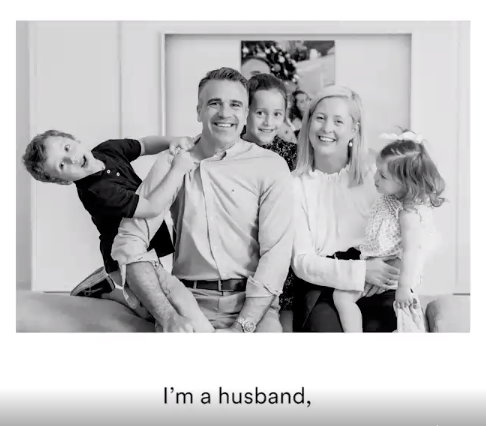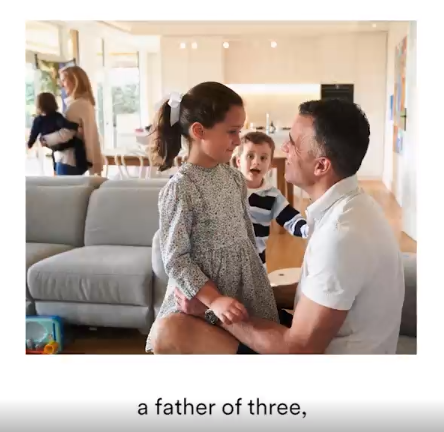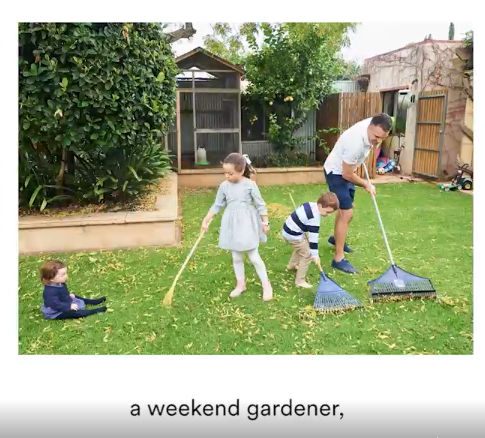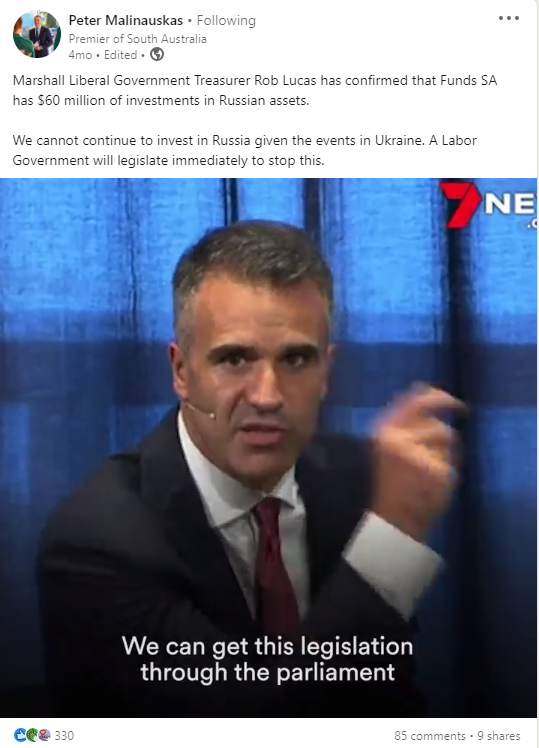It’s a topical question when it comes to social media in government: Do leaders face risk or reward online? Having worked with a fair few public sector agencies and leaders over the years, the one thing that has changed most dramatically since COVID is the awareness and willingness among public sector leaders to step up on social media and have an individual voice online.
Now, don’t get me wrong. There is absolutely still an air of concern around the unpredictability of stepping into the social media world and what sort of criticism might emerge. But I would say there has been a shift – there is definitely a greater awareness among leaders and their advisers that these conversations are happening, and whether they like it or not, avoidance is no longer the preferred strategy. It’s better to participating, to be engaging and influencing the conversation.
I had a great chat with David Pembroke, CEO of Content Group about this in episode one. We explored why public sector leaders should be online and the opportunity government leaders have in a digital world. In this episode, we continue to dig a bit deeper on this topic and hear from someone who knows all too well, the power of social media in politics.
Having worked with Victorian Premier, Daniel Andrews, and recently appointed South Australian Premier, Peter Malinauskas and now the founder of consultancy Love Reacts Only, I was thrilled to have Eloise Young share her insights and experience on the Your Digital Reputation podcast. At a glance, together we explore:
1. The potential for government leaders to take control of their reputation by showing up authentically online.
2. Why consistent leadership both on and offline is crucial to building trust and reputation.
3. How leaders like Daniel Andrews and Peter Malinauskas are reaping the rewards of digital participation.
Here’s a snapshot of Eloise’s advice and wisdom when it comes to whether government leaders face risk or reward online.

The insights + advice.
Roger Christie: Given your social media in government experience, in your opinion, do government leaders face more risk, or more reward online?
Eloise Young: I think the first thing to say is that all communication carries a degree of risk. As humans, we say things, we speak, we talk, we write, we’re putting our ideas out there and we’re relying on other people to understand our meaning. So, every form of communication, regardless of the platform, carries some layer of risk.
But I really think the biggest risk is being left behind. The landscape is changing so quickly that really the greatest risk for leaders is to not be on board with this and not be evolving – not being aware and growing with it. So I firmly fall into the greater reward camp.
There are a myriad of rewards out there for people who are willing to engage online. And I think they fall into two camps, 1) being the kind of practical rewards or advantages that you can seek out, and 2) around more of the personality based of reputational benefits.
When we’re thinking about risk, it might sound counter-intuitive to some, but there is in fact a lower degree of risk online because you actually have more control over the way that your image is being presented. You’re going through a filter when you use traditional media, whereas (with social media) you actually have a lot more control. A live press conference is a live press conference, and literally anything could happen.
Whereas, if you use social media or digital media effectively, you can have a lot of control over how your messages are put out. So it’s a really great opportunity for government leaders and politicians to just keep reinforcing that message that you’re trying to get out there into the community. You’re building a relationship with people over time.
And another big advantage is being able to have a two way communication with the public. It’s a direct feedback. They’re going to tell you if they like what you’re doing or not. And if you’re listening, you can adapt and you can say, okay, this is not popular. Why do we think people are responding to this? We think this is a great policy, but it’s not landing right. How can we change it so that people take from it what we hope they will?
Roger Christie: I feel like digital actually holds people to account and it encourages better leadership behaviours.
Eloise Young: That’s right. You can’t maintain a fake persona over a long period of time. You can maybe do it once or twice and you can put out a lovely photo of your family or your dog, being like, here’s my authentic life. But as you say, if people are looking at the whole picture and they’re building a perception of a leader based on a lot of different angles, you really can’t fake that over time.
Digital Government Leadership Report.
Roger Christie: We did the Digital Government Leadership Report in partnership with Brandwatch where we looked at what Premier Daniel Andrews had done over the period of just pre COVID and through COVID. And there were some really clear insights.
He’d built a strong digital reputation before COVID hit so he actually came out on top during the pandemic where I know a lot of other people suffered. It’s quite remarkable. Is there anything that you’d call out? Is there anything you’d say you’re not surprised by, or learnings for other leaders from that?
Eloise Young: I’m not surprised. I think it ties in with a digital element, but it also ties into Dan’s leadership. When we’re talking about the online space versus real life expressions of leadership, I don’t think we should divorce them because your online presence is an extension of yourself.
And during the pandemic, what people were seeing from him was a person who was willing to stand up every day for a hundred and however many days, didn’t take a break, was with the Victorian people every step of the way, was like “I am not leaving this job”. You know, “I’m here for you”. And that was reflected through everything that we did online as well. So we saw our role as being to reassure, to inform and to really, really keep reinforcing that message that we were in we were all in it together.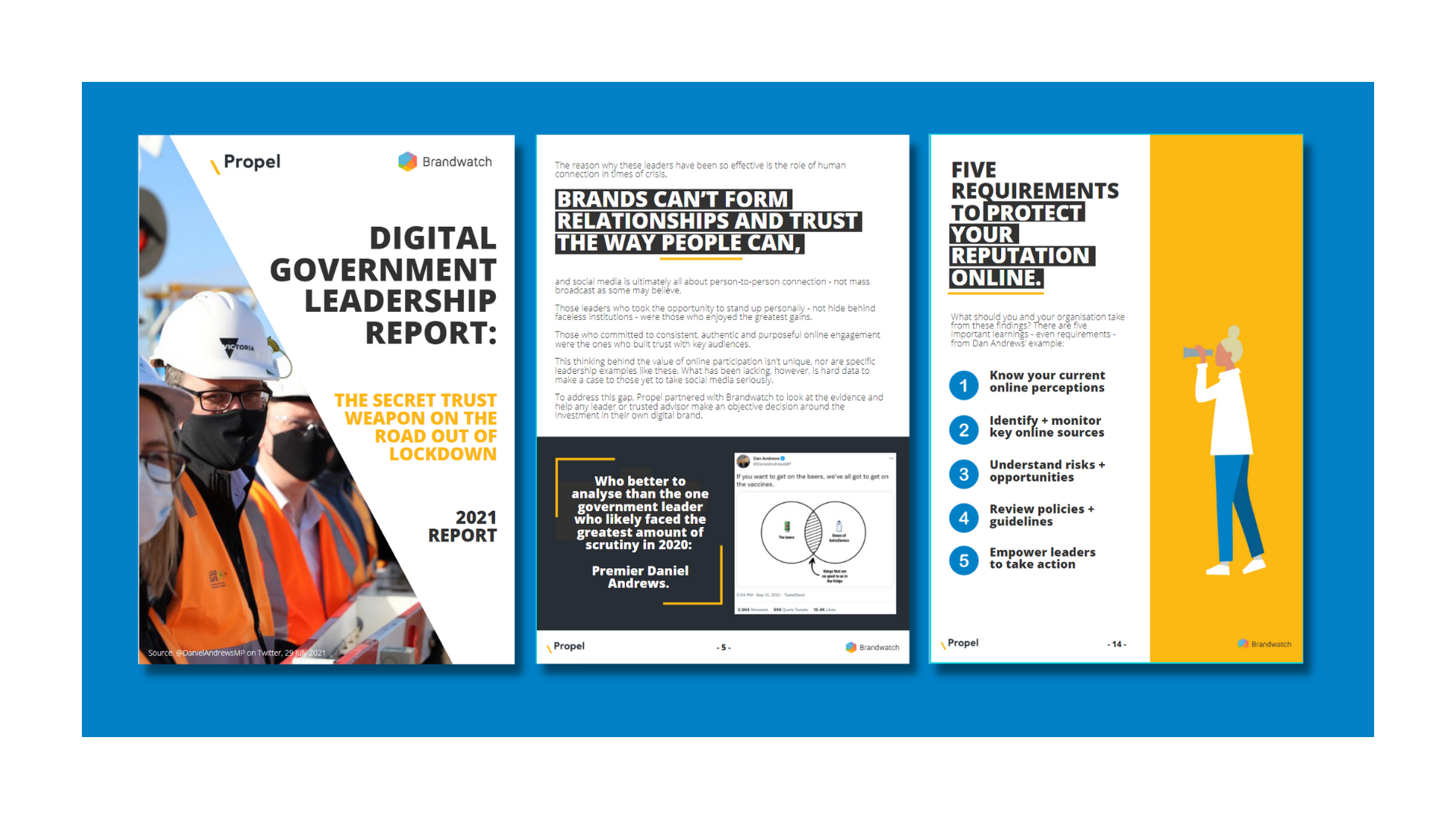
Social media in government: Digital Leadership in practice.
Roger Christie: There has been a change of leadership in South Australia. What learnings or observations do you have from your work with Premier Malinauskas?
Eloise Young: I think he is an excellent leader. He’s very authentic. He really believes in his mission, which is a better future for South Australians. It’s not just a line. He lives it every single day. That’s why he’s there. That’s why he wants the job. And what we were getting out of all the research we’re doing, and also all the anecdotal evidence, was when people see him, they like him.
He also started off a lower base in terms of his own audience, because Premier Marshall had been in front of the media and online every single day during the pandemic. So we understood that we needed to really build it, and that’s part of where the “Meet Mali Campaign” came from to show that authentic side of him.
His campaign launch ad starts off, “I’m a husband, a father of three, a weekend gardener, pretty average footie player and leader of the South Australian Labor Party”. As you can tell that line has imprinted in my brain, but it was really about showing different sides of him and helping him to connect with the community. And then he goes on to outline his plan. So this is not just vote for me because I’m not the other guy, this is vote for me because I have a genuine vision for the State.
He is very natural. He’s happy to just jump on Facebook live. Sometimes he would just jump on first thing in the morning. He’s very fit and he would go running most mornings and sometimes he’d just bump into someone and do a Facebook live on the street. He’s very happy to do that. So I guess that is an advantage when you’re starting from that point of being open to all opportunities.
Roger Christie: What is Premier Malinauskas doing well and how does he harness his own digital reputation?
Eloise Young: There’s a moment that sort of stands out for me in the campaign. Peter was in a debate with former Premier Steven Marshall. They asked about divesting State investments in Russian assets and Marshall says, it’s too difficult, can’t happen. Peter jumped in and said, “I’ll answer that question. If I become the Premier next week, I will walk into the parliament and pass legislation to make changes.”
It was a very decisive display of leadership. Because he believes it, he will do it. He’s not saying that to get elected. He’s saying that because he thinks that’s the right thing to do. Immediately as a team we were thinking, okay, how can we use this? We chopped it up and put it across all his platforms. And for some people, this was sort of the first time that they’d seen that from him. You can’t construct these moments, they happen because it’s someone being authentic in the moment. We wanted people to see this because it really does show that side of him. It was our most viewed video of the campaign.
That video would never have been seen by most people, because most people are not tuning in to seven news Adelaide at two o’clock in the afternoon on Thursday, they’re just not. So we were able to use social media to really amplify that so people could see it. I saw what Mali actually calls active leadership and action. This is someone willing to step up and do the right thing for the community. I think that was really powerful.
Final takeaway.

To listen to this in full, head to Apple Podcasts, Spotify or wherever you get your podcasts.
Please subscribe, leave a review or drop Roger Christie a note with any thoughts from this conversation – we’d love to hear from you.
You can hear more from Eloise by following her on LinkedIn. Learn more about Love Reacts Only here.
